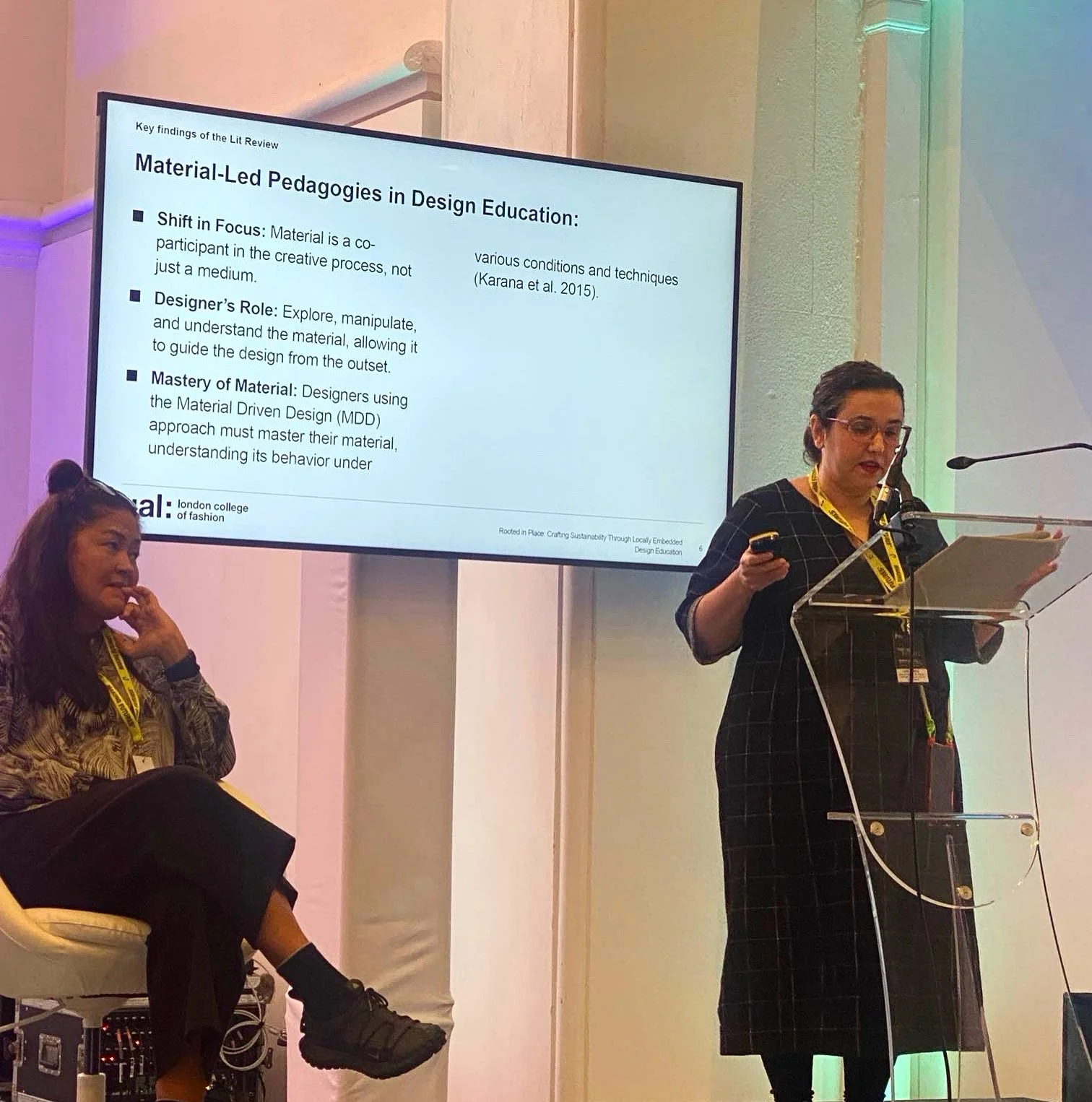Craftsmanship, artisanal knowledge and the aesthetics of place
Track 01 explores the relationship between design, form and place, where why something is made is materially consistent with where it is made—a deep look at the role that terrain, ecosystem, climate, landscape, and geography have on what becomes a signature craft in any particular place. What is the knowledge or behaviour of the land embedded in the form or necessity of an object? This track asks us to look closer at the ways an object’s morphology, substance and purpose are determined by a specific set of raw material conditions that result in the form which emerges. It is a view of ‘crafting’ as a verb that can be applied as well to crafting worlds, crafting democracies, but doing so from the bottom up rather than top down
Presentation at the Making Futures Conference 2024 Torres, Lara (2024) Rooted in Place: Crafting Sustainability Through Locally-Embedded Design Education. In: Making Futures 2024: Beyond Objects // Materiality at the Edge of Making, 17-19 October 2024, Plymouth.
Title: Rooted in Place: Crafting Sustainability Through Locally-Embedded Design Education
Keywords: Sustainable Educational Practices; Place-based Approaches; Regional Craftsmanship; Material-led Pedagogies; Cultural Heritage
In response to the growing imperative for sustainable educational practices, this paper advocates for integrating place-based approaches in design education as a transformative approach within higher education pedagogies. Reflecting on current design pedagogies, I will share insights gained while teaching on the MA Fashion Artefact (In-person) and developing the new Course for the MA Fashion Artefact in a Low Residency format at the London College of Fashion. Established by Dai Rees in 2007, the course was originally developed from Rees’ own research project ‘Patronage, Artist, Media and Audience: A Model for Twentieth Century Craftsmanship’ (2003) and was grounded in a multidisciplinary studio framework and a unique approach to fashion craftsmanship. From the outset, the course has been characterised by its thematic focus on 'Regional Craftsmanship and Heritage'.
Central to this investigation is the exploration of how the essence of craftsmanship, deeply ingrained in the original course, can be effectively preserved and enhanced in a low-residency setting. By probing questions concerning the symbiotic relationship between the creation process and its geographical context, this study seeks to understand the significance of why an artefact is crafted in a manner consistent with its place of origin.
Furthermore, this paper explores the role of material literacy in supporting educational practices within low residency settings. By leveraging local knowledge, educators can facilitate meaningful interactions with local materials and create immersive learning experiences that transcend geographical boundaries. Through case studies and best practices, this paper highlights the potential of situated knowledge and material-led pedagogies to enhance design education and promote global collaboration towards a more equitable and resilient future. By engaging learners in hands-on, experiential learning activities that emphasise the materiality of their surroundings, educators can empower students to critically examine the environmental implications of their choices and develop innovative solutions to complex sustainability challenges.
This paper argues that material-led low residency study represents a promising paradigm for sustainable higher education, offering a holistic approach to learning that integrates ecological, social, and economic dimensions. By embracing sustainability principles and harnessing the transformative power of materiality, educators can inspire a new generation of environmentally-conscious leaders who are equipped to address the complex challenges of the 21st century.


